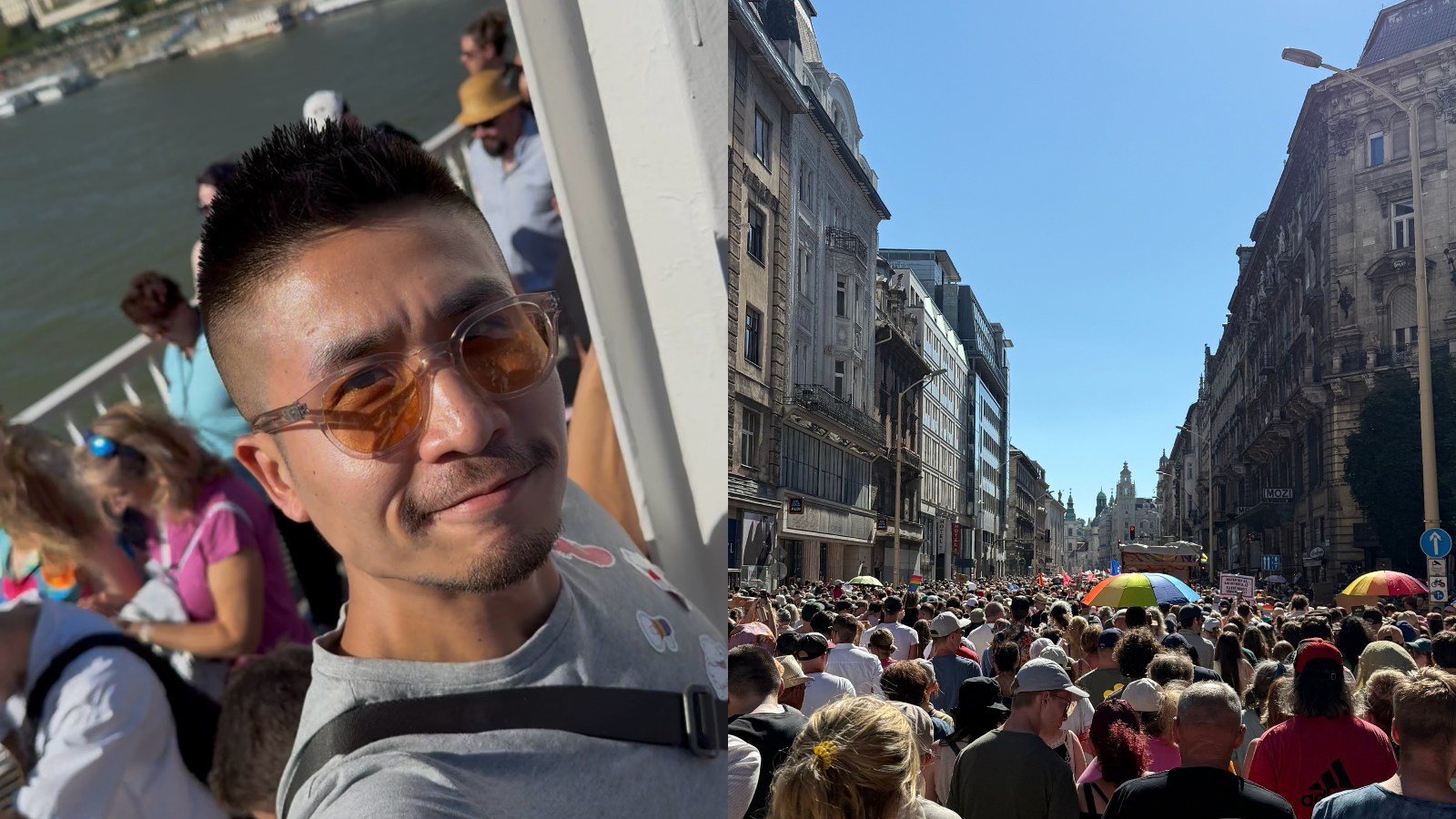Budapest Pride shows us: the more they try to suppress us, the stronger we become
Opinion: Jaron Soh, co-founder of LGBTQIA+ mental health app Voda, reflects on Budapest Pride and how attempts to suppress LGBTQIA+ people only fuel greater resistance and solidarity.
By Jaron Soh

This weekend, I joined over two hundred thousand people at Budapest’s 30th Pride march.
This was the city’s biggest ever Pride; and it was more than a celebration, this march was a defiant act of resistance against oppression.
Hungary’s Prime Minister Viktor Orbán’s administration had officially banned Pride, threatening a fine of up to 200,000 HUF for anyone attending, and promised to deploy facial recognition technology to identify participants.
The government justified the ban under the guise of “protecting children”, claiming that the visibility of the LGBTQIA+ community is dangerous to minors. Their insidious rhetoric, not dissimilar to the language of care used to oppress trans communities in the UK, is being used to justify discrimination, stripping away LGBTQIA+ people’s human rights under the guise of compassion.
Just days before, local organisers were not even sure whether the march would actually happen, as there were fears of far-right extremists disrupting the march and escalating tensions between the police, the organisers and the government.
Yet, despite the risks of intimidation, police surveillance, and potential legal repercussions, over two hundred thousand people showed up anyway: defiant, jubilant and united in resistance.
So why did we — LGBTQIA+ Hungarians, straight couples, parents with kids in tow, multi-generational families, European politicians, activists and global LGBTQIA+ community members (like myself) — show up?
Because we refute the false message that banning Pride “protects” children.
Because many of us were once LGBTQIA+ children who grew up with no visibility, feeling utterly alone because of the shame we felt from similar forms of state suppression.
Because we also know that banning Pride goes far beyond the LGBTQIA+ community. It concerns all of us. Many allies knew that if the Hungarian government were to get away with banning LGBTQIA+ people from assembling peacefully, soon they could also ban people from every other walk of life from organising, gathering or protesting.
This was a fight for democracy itself, and unfortunately for Orbán, his ban has paradoxically led to the largest ever Budapest Pride in record, with a turnout far exceeding anyone’s expectations.
The Hungarian government’s attempt to suppress LGBTQIA+ people has instead spurred families and allies who have never been part of Pride to march for the first time, and has inspired more international media coverage than any other year (Orbán, it’s called the ‘Streisand effect’, look it up!).
The attempt to ban Budapest Pride has brought people closer together, unifying people across generations and political divides, which is precisely the opposite outcome that the government intended when they scapegoated the LGBTQIA+ community.
Budapest Pride has given me hope, because I believe it to be the trailhead towards a stronger LGBTQIA+ movement: one that brings everyone to rally for both civil liberties and LGBTQIA+ rights.
As such, despite the rise in anti-LGBTQIA+ sentiments globally, I deeply believe this to be true: the more you try to suppress us, the greater we will rise up in response, and the stronger our movement will become.
Joining the march with so many others also made me realise that despite the media headlines, there are far more people who are driven by love and compassion than there are those who are driven by hate (far-right extremists who tried to disrupt the march were outnumbered thousands to one).
It is poignant that Budapest Pride took place on 28 June, the same day as the Stonewall Riots.
56 years ago, local LGBTQIA+ activists at the Stonewall Inn in New York made history by protesting against state repression and fighting for their human rights.
56 years later, a new generation of LGBTQIA+ people, now flanked by allies, activists and politicians, descended upon Budapest Pride to protest and fight for the very same thing.
It is sobering that decades on, we are still fighting for the same human rights that our predecessors demanded at Stonewall. But this time, I take solace in the fact that it was not just LGBTQIA+ people who are leading the movement, we had tens of thousands of allies marching alongside us.
And after all this time, we’re still here, we’re still queer, and you can never legislate us out of existence. As Budapest’s progressive mayor Gergely Karácsony put it, “Freedom and love cannot be banned.”
